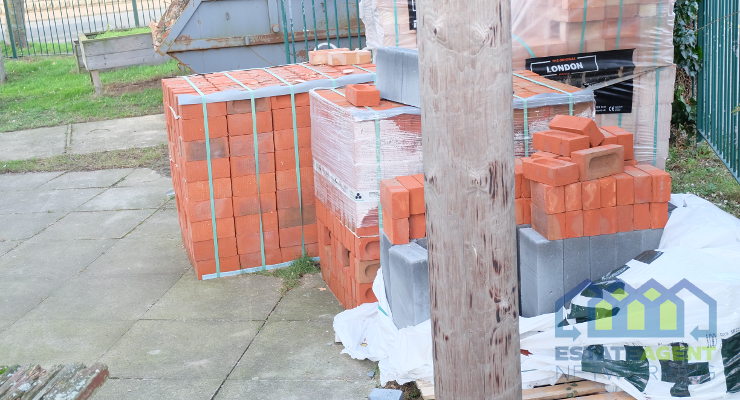What are the benefits of home builders’ insurance?
Building residential properties comes with a vast range of responsibilities. Homes need to be carefully constructed to remain functional and safe to live in for many years to come, with many different trades working together to complete the construction project.
However, the complex and highly regulated nature of construction work, in addition to the number of different people involved at various stages, means that there are unfortunately plenty of opportunities for something to go wrong.
This is why having the right insurance cover is key – home builders’ insurance can help to minimise the financial risks associated with building homes and make sure that various elements of the process are covered, just in case.
Usually tailored to the custom requirements of the specific development, here are some of the main benefits of home builders’ insurance that make it essential to the success of a building project.
Reducing financial risks
Building projects can become very expensive; both developer finance lenders and mortgage lenders are unlikely to risk financing a construction project or a property purchase without the assurance of an appropriate level of insurance cover.
The building, the construction site, and all people and materials involved need to be covered at all times in case of issues such as delays, accidents, vandalism, or theft.
The right insurance policy can help to shield you against the soaring costs of replacing materials, equipment, or labour, as well as providing a route to deal with insurance claims against you.
If you don’t set up your own home builders’ insurance policy, you’ll have no way of knowing if the project has adequate cover or what your liabilities are – and you definitely don’t want to be left uninsured if there’s a problem.
Various types of cover
There are many different aspects of insurance cover that can be bundled under the umbrella of a home builders’ insurance policy.
The types and levels of cover will vary depending on the circumstances of the specific project, but home builders’ insurance packages may include:
• Contractors’ All Risk Insurance – can cover the breakdown, damage to, or loss of property, tools, equipment, or materials as specified
• Contract Works Insurance – can cover the costs of repairing specified elements or replacing damaged elements of otherwise complete works
• Employers’ Liability Insurance – employers are legally obligated to cover employees such as subcontractors and labourers in case of accidents
• Public Liability Insurance – can cover the costs of third-party liability claims by members of the public against your business for loss, damage, or injury
These policies, and extras such as legal expenses cover, can all be arranged separately, but this is likely to be at greater cost and require extensive paperwork.
Many professionals find it much more straightforward to negotiate a bespoke home builders’ insurance arrangement that meets the exact needs of their project.
Available to many professionals
As a key component in facilitating a building project, home builders’ insurance benefits many parties involved with a financial stake in its successful completion.
Those who can set up home builders’ insurance for their project are not just large construction companies, but any professionals working in the property industry on any scale, such as:
• Builders
• Self-builders
• Renovators
• Developers
• Investors
• Business owners
• Homeowners
The leading party responsible for the construction project should set up home builders’ insurance before it begins to ensure that every stage is covered throughout its course.
In most cases, this policy holder will be looking to sell the property when the work has been completed safely and the cover term has ended – which is where building warranties come in to extend financial protection to the buyer post-completion.
Building warranty on completion
The party who is responsible for overseeing the project and its financing should not only ensure that home builders’ insurance is in place before any work begins, but they should also set up a building warranty that can be transferred to the buyer at the end.
While home builders’ insurance will protect the construction project and those working on it, a new home warranty will involve inspections throughout the course of the build to make sure it is completed to the right legal standards and ready to sell.
Most home buyers and their mortgage lenders will be hesitant to commit to a purchase without this, as it offers financial protection against the cost of rectifying latent defects if something unnoticed went wrong during the build.
It can make things much easier to go to a provider who can offer both types of cover, as needed – like Architects Certificate, who are known for their excellent ABC+ Warranty.
Why not reach out to discover how they can help you with home builders’ insurance and ensure the right levels of cover for your project?









